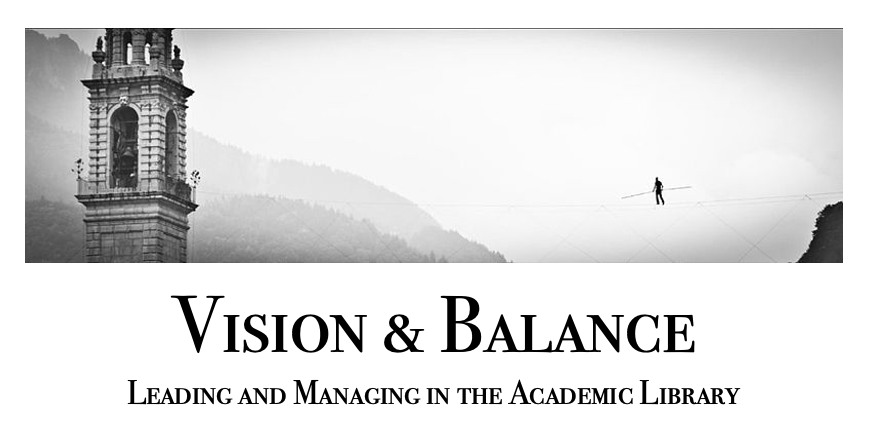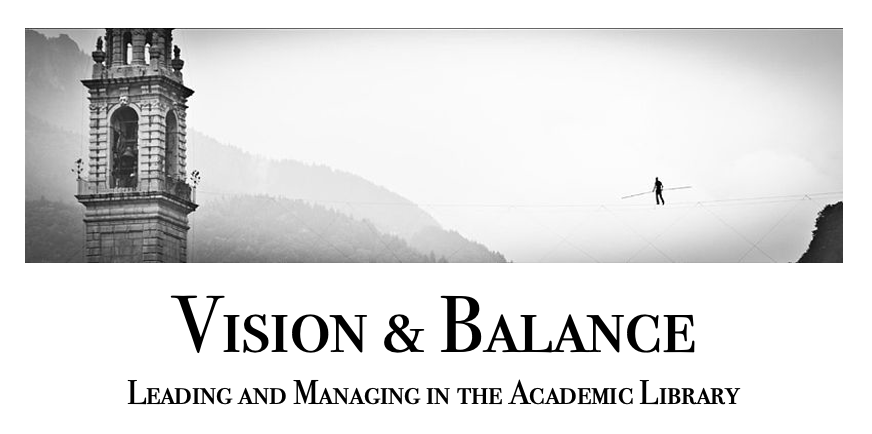More Thoughts on Openness and Transparency
You can't tell everyone everything, especially when you're dealing with sensitive matters. So how do you decide whom to tell, and what to tell them?

Last fall I wrote a post in which I argued for the importance of defaulting to openness and transparency, citing three reasons for such a stance:
- People really do need to know more than you might think they do. Remember that you don’t fully understand the work of the other people in your organization, including those who report up to you. (You may think you fully understand their work, but you don’t.)
- Whenever you show yourself to be an information sharer rather than an information hoarder, you gain trust. Then, when you have to keep information indoors later, people are more likely to give you the benefit of the doubt.
- Your library will run better when its employees are better informed.
However, I also acknowledged that "defaulting to openness does not mean always telling everyone everything." We all understand that in leadership roles, we'll often be privy to sensitive personnel, financial, administrative, or other information that can't be widely shared – or, at least, can't be widely shared yet. Usually such information is easy to identify: you attend a meeting of academic deans in which a program still in development is discussed prior to its public rollout; you become aware that a library employee may have committed an offense that will lead to disciplinary action; you're in discussions with a donor who is considering (but has not yet decided on) making a large gift to the library; etc.
But one of the challenges of leadership is that you often have to make judgment calls about what to share broadly within the library, and it's not obvious what the right decision would be. An employee is out for an extended period because of a family tragedy that he does not wish to have widely discussed – obviously, his colleagues need to know that he's going to be out, but how much should they be told about the reasons? Or an employee has been accused of financial malfeasance and is on leave while an investigation takes place – is it possible to tell her colleagues anything more than "she's on leave and it's not yet clear when she'll return"?
While there is no decision-making template available to give you step-by-step instructions in every such situation, there are principles you can apply that will help. They include these three:
- Start with institutional policy. Depending on the situation you're facing, there may well be a "policy fence" around your options – in other words, helpful constraints created for you by university policies. In sensitive situations, it may be wise to start by counseling with whichever campus administrator you report to, and either looking at relevant policy documents together or checking in with whichever other administrator is over finances, personnel, or whatever other area of campus management is relevant to the situation. (Or both.)
- Identify genuine stakeholders (as opposed to "interested parties"). In a post earlier this year I shared the four categories of "interested party" we've defined in our library to help us figure out who should have how much say in decision-making. The same principles apply when thinking about who should be informed and who should not be regarding sensitive issues and situations in the library. If, for example, a member of your finance team is under investigation, that may be something the finance manager or controller needs to know (on the other hand, institutional policy might forbid telling them) – but it's almost certainly not something that the head of collection development needs to know.
- Work closely with HR. If you're dealing with a sensitive situation in which it's not clear what you can or should share broadly with your employees, chances are very good that the sensitivity arises from the involvement of personnel. Even delicate financial situations are usually delicate, at least in part, because of the people involved. And of course, your HR manager is also in a good place to help you map out the implications of sharing or not sharing information for those outside of the immediate situation. So as you begin strategizing about whether and how to communicate with your people, it's always wise to do so in collaboration with your HR manager (and, sometimes, with HR administration outside the library).
None of the principles listed above is likely to surprise someone with experience in library management – however, as all of us can attest, just because they're obvious doesn't mean they're always observed. Good leadership consists, among other things, in keeping principles like these in mind and following them consistently.
Takeaways and Action Items
- You can't tell everyone everything all the time, and some of the toughest decisions a leader has to make are those that have to do with whom to inform and whom to leave in the dark.
- The first line of appeal is institutional policy: does it offer helpful constraints that forestall certain options? (Probably not, but it might.)
- Think back on a time that you had to make a tough decision about whom to red into a sensitive situation. How did you make that decision? Did it work out well for all involved? If not, what mistakes did you make, and do you have a clear sense of how to avoid them next time?
